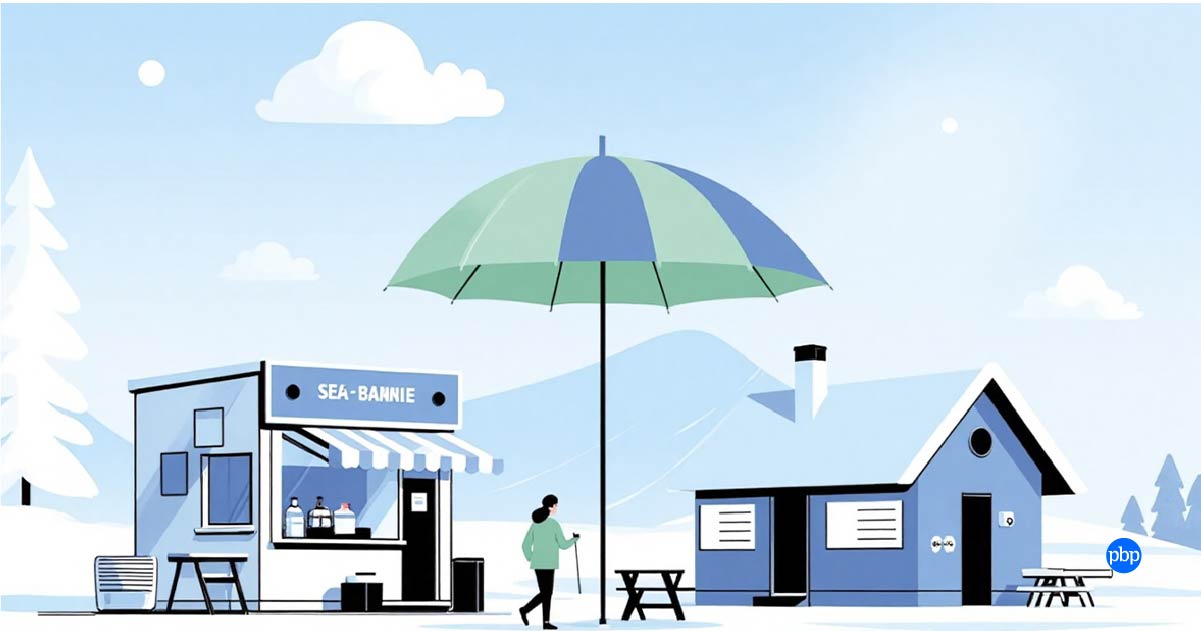Summer brings sunshine, footfall, and big opportunities, especially for seasonal businesses like food trucks, beachside vendors, and event planners. But while business may boom, it also brings unique risks: weather-related damages, customer accidents, equipment breakdowns, and more. At that time, seasonal business insurance came as a financial savior.
This blog will discuss the significance of seasonal business insurance:
- What is Seasonal Business Insurance?
- Who needs Seasonal Business Insurance?
- Features of Seasonal Business Insurance?
What is Seasonal Business Insurance?
Seasonal Business Insurance is a type of commercial insurance designed to protect businesses that operate seasonally, such as summer, winter, or festive seasons. Seasonal businesses generate a large portion of their annual revenue in just a few months. , making it vulnerable to unexpected disruptions or liabilities.
Unlike standard health insurance or year-round policies, seasonal business insurance offers a lot of flexibility to the policyholders by allowing coverage during specific periods of operation, reducing premium costs while still providing comprehensive protection.
Who needs seasonal business insurance?
- Food stalls
- Ice-cream Parlor
- Summer Camps
- Water Sports & Boat Rentals
- Resorts, Homestays & Vacation Rentals
- Agricultural Produce Stands or Nurseries
Also Read: Commercial Insurance Guide - From Buying to Claim
Key features of Seasonal Business Insurance
Flexible Coverage
In seasonal business insurance, the policies are available for a shorter period (e.g., 3 or 6 months), concerning the actual operating period—ideal for summer businesses like ice cream trucks, water sport rentals, and pop-up shops.
Cost-Effective
Since the insurance coverage is offered on a seasonal basis, you are not required to pay a premium for the months when your business is not in action. This flexibility has made seasonal business insurance more budget-friendly than full-year policies.
Customizable Plans
You can customize the seasonal business coverage based on parameters like industry, location, business size, and risk exposure. You have to decide before purchasing a policy whether you need liability protection, equipment insurance, or property damage coverage.
Regulatory Compliance
If you are recruiting seasonal employees or using any public space to run your business, insurance helps meet legal requirements such as liability and workers’ compensation, protecting both your business and your staff.
Also Read: How MSMEs Propel Growth in Tier 2 and 3 Cities?
How to choose the right seasonal business insurance plan?
Analyze your business cycle
Start by identifying the specific months your business operates and when it remains closed. Knowing your business’s active and inactive periods will help you determine whether you need year-round coverage or a flexible plan that adjusts based on your seasonal activity.
Determine the potential risks associated with the business
Every seasonal business has its unique risks. For example, a food stall may face liability risk, while a holiday décor shop is more prone to theft or fire. In such a way, we have to identify potential risks such as property damage, customer injury, equipment theft, or loss of income due to unforeseen disruptions.
Prefer to choose the right insurance coverage
Seasonal business insurance comes in different types; prefer to choose the one based on risk assessment. Such as General Liability Insurance is the option for third-party claims. Buy Commercial Property Insurance to cover your inventory and equipment. Business Interruption Insurance covers income loss due to disruptions. As per the business requirement, if you are hiring temporary staff, Workers’ Compensation Insurance works best. Also, consider Inland Marine Insurance if you transport equipment to different locations.
Prefer Flexible & Short-Term Plans
Since your business is seasonal and not operational all year, you can choose an insurance policy that offers flexibility. Some insurers allow you to pause the coverage in the off-season or provide short-term policies that align with your business needs. These options can significantly lower your premiums.
Understand the Fine Print
Before purchasing, ensure to read the policy documents carefully. Understand what is covered, what is excluded, and how coverage applies during both active and off-season periods. Pay attention to cancellation terms, claim limits, and deductibles.
Seek Expert Guidance
If you are not sure which plan is best for you, speak to a PBPartners licensed commercial insurance advisor or a PoSP (Point of Sales Person) agent. They can recommend the most cost-effective and suitable policy for your seasonal business, ensuring you stay protected without overpaying.
Bottom Line
Summer is a time of great business opportunity, but also unpredictable at the same time. Investing in summer-specific commercial insurance ensures your seasonal business stays protected, profitable, and prepared—no matter what the sunny months bring.









